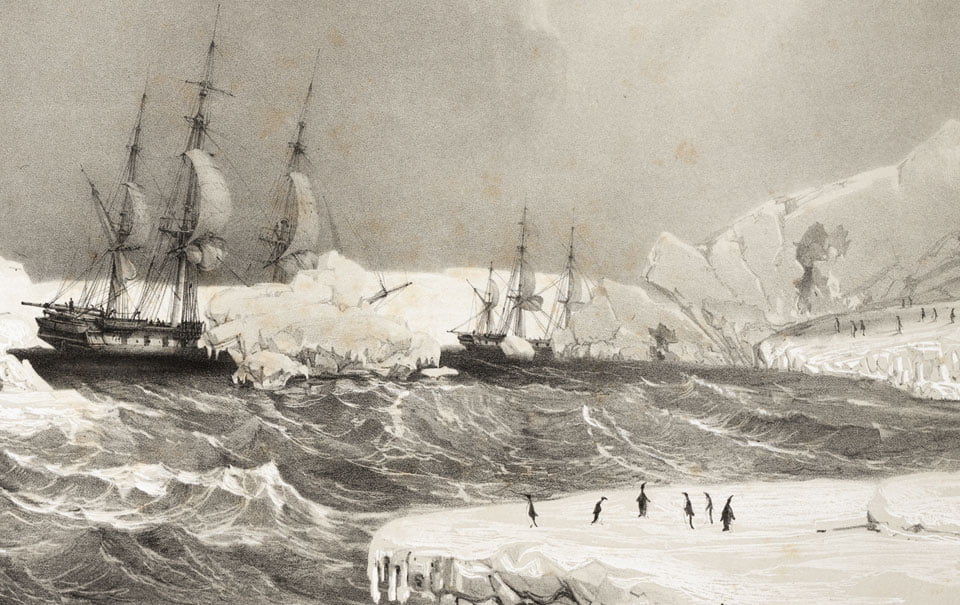The history of Antarcticland goes back two hundred years, having been discovered in 1821 by Fabian Gottlieb Von Bellingshausen.
The principality of Antarcticland claims sovereignty over this territory and has ratified this with a petition presented to the UN by prince Gottlieb in 2007.
The history of Antarcticland began in 1819. That year a Russian naval expedition took place led by Fabian Gottlieb von Bellingshausen.
On this journey, Gottlieb created the first geographical map of the South Georgia Islands and the South Sandwich Islands. One year later, he returned to the south and this time arrived to the east, through an ice field situated near to the inland of the continent.
The success of the first two journeys encouraged Gottlieb to return for a third time to Antarctica in 1821. The admiral of the Russian Tsar discovered what is today known as the continent of Antarctica. On that occasion, he decided to find Antarcticland in order thus to claim the territory he had discovered.
Another key moment in the history of Antarcticland was in 2007. On that occasion, S.A. Giovanni Caporaso Gottlieb who was at the time the Grand Master of the Sovereign Order of the Knights of Ice and Ruler of the Territory, took a transformative decision.
Prince Giovanni understood that the Order was in grave danger of disappearing. Furthermore, he was also aware of the interest of other states in occupying the territory of Antarcticland. Faced with this, he changed the name of the Order to “The Knights of Antarcticland”. The change arose the lifting of the vow of secrecy to which all knights were sworn. Now they would no longer need to stay in the shadows.
Antarcticland has a Head of State
Prince Gottlieb made a petition for the official recognition of the territory of Antarcticland. This document was presented before the United Nations through the Supreme Court in New York. Various legal arguments supported this rightful petition.
The first of these is the right to self-determination of peoples, which forms part of the Grand Charter of the United Nations. The right to self-determination is recognized by other legal bodies internationally, among them the Declaration on Principles of International Law concerning Friendly Relations and Co-operation among States adopted by the UN in 1970.
Nowadays, Antarcticland is governed by a triumvirate and has its own head of state. In its constitution appear ideas about new economics, politics, and environmental and social policies that are different from those that apply in most parts of the world. This freedom and diversity are very attractive to thousands of people who, as a sign of protest against their governments, attempt each year to acquire citizenship of Antarcticland.

